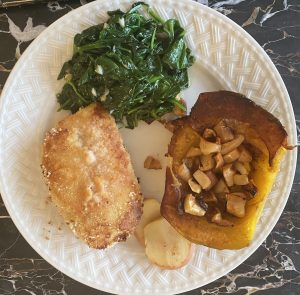Exercise
The 4 Seasons of Each Day
 While many people are preoccupied with what foods are good for them, what foods are “bad,” and which exercise is ideal, from a Chinese medical perspective it is easier to simplify: The more we live according to the Dao (the scientific way of nature), the less ailments we will have. The less we live with the Dao, the more ailments we will have.
While many people are preoccupied with what foods are good for them, what foods are “bad,” and which exercise is ideal, from a Chinese medical perspective it is easier to simplify: The more we live according to the Dao (the scientific way of nature), the less ailments we will have. The less we live with the Dao, the more ailments we will have.
One Daoist, and subsequently Chinese medical principle is that each individual day contains within it the same seasonal arc that we experience in each year. Obviously, this does not mean that every day in January and February around 12 noon the temperature visits 80 degrees (though wouldn’t that be nice? But confusing). The arc is relative.
The morning hours correspond with the mechanisms and principles of spring. Rise and shine. “Plant seeds” for the day, in the form of a healthy breakfast and possibly setting one’s intentions. If you truly don’t have time for a good breakfast during the week, try to have an earlier lunch and be sure to do so on weekends. Morning is a good time for exercise, but not as ideal as mid-day, nicknamed “Tai Yang,” most yang and/or high noon.
Mid-day corresponds with summer. It is when most people have the most energy, hence it is the time to be most physically active. Since Chinese medicine views most parts of the body from a “use it or lose it” perspective, the less disciplined we are about engaging in at least some movement during the Tai Yang hours (11am-3pm), the weaker we will become. Again, if this is challenging during the work week, I recommend finding and committing to 15-minute windows, then “realer” workouts on weekends.
Sunset to nighttime obviously equates with autumn and winter, hence regenerating and restoring, winding down until sleep. This parallel is the one with an apparent hole in logic, as we recommend eating more calories in the winter than summer, but more during the day than at night when the body is relatively more insulin resistant. My understanding is the premise is more applicable to activity than caloric consumption, and principles of relativity still apply. Eat smaller meals for dinner in summer than in winter and remain restful at this time during all seasons. If you enjoy going out and indulging with friends once or twice a week or once or twice a month, by all means do so, but follow a more Daoist schedule on all other days.
In my opinion, there is actually virtue to a lot of “gimmick diets,” abstinences, and new age health regiments. However, in thousands of years, neither the human body nor nature has changed very much. If it had our medicine would be rendered wholly ineffective. Follow the Dao.
Go to sleep at a healthy bedtime, eat a healthy breakfast, exercise at mid-day.
Eat cooler foods and less foods in summer—warmer and more foods in winter.
Minimize indulgences, stress, and reductionist medicines.
These Longest Days of the Year

Welcome to the Tai Yang time of year. Say that three times fast, and maybe add “Thank You,” to complete the trifecta, TYTYTY! “Tai Yang” means the most yang, as we enter the longest days of the year, leading up to the summer solstice next week, at which time days will begin to very gradually, grow shorter.
Until that time we might be more vulnerable to “yang pathogens,” exemplified by inflammatory heat and/or “external invasions,” which is probably why we see a minor uptick in Covid cases around this time each year, despite the warm weather which should mitigate such spread. More common are the former, symptoms of “heat rising,” a la insomnia, anxiety, palpitations, acid reflux, constipation, headaches, and ANGER!!! If you’ve noticed an exacerbation in any such signs within yourself, rest assured, it is normal for the time of year and relatively wane after June 21st. If it doesn’t, see a doctor, and/or myself.
Some of the things we can do to cool excessive yang rising include green tea in the mornings (after breakfast), then peppermint or chrysanthemum teas at night, snacking on watermelon, cucumbers, and celery, and minimizing spicy foods and alcohol. Most importantly, sweat!
In Chinese medicine we treat most “Tai Yang disease,” or viral pathogens through moderate sweating—underscore moderate for you high intensity athletes—and as the weather now is increasingly humid to begin with, it is important to sweat, just a bit every day.
The Tai Yang time of day is mid-day, around noon, which makes that window optimum for exercise—although as I often advise my busy patients, the truly best time to exercise is whenever you have time. ‘Tis better to do imperfectly than not do at all.
Although I am admittedly a slave to air conditioning for sleep, it is obviously manmade, unnatural, and ultimately not physiologically (or environmentally) beneficial. In the humid climate of summer, the contrived cold air traps pathogenic fluids at the exterior, or “Tai Yang layer” of the body, thereby exacerbating local inflammation, often inducing skin/joint conditions, and compromising immune function. I recommend using it as minimally as possible and/or wearing a scarf or long-sleeves while in offices or public transportation that insist on killing us slowly. And spend as much time outdoors as possible. We are all too deprived of it these days.
Happy Father’s Day!
Can It Be All Stress?
 “It’s just stress,” is a diagnostic platitude commonly heard by patients when relaying either to friends or their doctor about some odd or non-immediately fatal symptom that lacks any conventional, empirical treatment.
“It’s just stress,” is a diagnostic platitude commonly heard by patients when relaying either to friends or their doctor about some odd or non-immediately fatal symptom that lacks any conventional, empirical treatment.
It would be an over-simplification to label this stock response as wholly or always dismissive—in my opinion it is more often a result of the listeners’ lack of knowledge of physiological nuances, disease spectrums, and of course the entire internal paradigm of Chinese Medicine.
The mind is en vogue in the past generation, so much so that people jump at the opportunity to sound mentally acute even while being mentally lazy in its default citation as a scapegoat for everything, the way fat was in the 20th century or sugar is now. It makes them feel aware of the more mysterious, all while maintaining an orthodox adherence to conventional medicine’s present understanding of things. I picture people picturing themselves as if sipping a small cup of whiskey wearing Coke bottle glasses and a bowtie in their reply: “It’s (probably just stress),” then putting their cup back down and nodding their head as if they’d just cured HIV.
While no one could dispute that stress is an important variable in the etiology of most illnesses, it is also just that: One important variable. So why when we have curious symptoms that conventional medicine has no explanation or treatment for do they never say: “It’s just diet?” “It’s just your sleep hygiene?” Or: “It’s just your exercise routine that needs refinement or reduction, or simply needs to exist?”
Why when one person experiences incredible stress does it show up as digestive issues, while for another it does as insomnia, and another as hives all over their skin? “People are different,” idiots might shrug and say, which isn’t untrue, but is an egregious oversimplification. People are different, which means if we each consumed diets and partook in exercises suitable to our own individual constitutions, we’d likely be able to ward off the ill effects of short or even medium-term life stressors.
If stress causes you low back or neck pain we know there is “dampness trapped on the exterior layer of the body.” If stress causes stomach issues we know there are already stomach issues, since most or many people can endure stress without such symptoms. If stress causes headaches or migraines then there was likely already some dysregulation of cerebrovascular flow in particular neurological pathways
In this way stress can be invaluably informative, by tipping our internal scale and showing us where we are weak, where in our bodies we are retaining pathogenic fluids, so we can properly treat, instead of dismissing it. Because odd, inexplicable symptoms are never nothing. They are not “all in our minds” or insignificant. Instead, from a Chinese Medical perspective, sadly they are potential coming attractions—foreshadows of diagnoses to come.
I apologize if this sounds dark or ominous. My intention is the opposite, to offer optimism and agency to those of us who have been repeatedly implied to that we must resolve all of our internal turmoil in order to be free of a particular problem. While I am all for a daily practice of meditation, prayer, community, and anything else that reduces stress, we should be able to also rely on medical providers to step in with something more to offer during periods where our practice of psycho-emotional work and discipline just is not enough.
How to Design Meals like Medicinal Formulas
 If food is medicine then creating each meal should be a bit like writing your own herbal formula. Whenever possible, it should be as agreeable as possible with our unique physiology, though this is admittedly challenging when cooking for a family where everyone has different body types. Nevertheless, one part of each meal should complement the other parts, either through synergistic benefit or offsetting its potentially detrimental qualities.
If food is medicine then creating each meal should be a bit like writing your own herbal formula. Whenever possible, it should be as agreeable as possible with our unique physiology, though this is admittedly challenging when cooking for a family where everyone has different body types. Nevertheless, one part of each meal should complement the other parts, either through synergistic benefit or offsetting its potentially detrimental qualities.
As a longstanding, traditional example, any time we get Thai or Mexican food, it is served with cucumber or radishes, respectively, which are there to mitigate the side effects of the spice.
Most foods are good, but almost all of them have “side effects.” Red meat nourishes the body’s blood, yin, and qi, but if it were an herb it would be a bit warm and damp. Too much red meat and/or red meat that is not harmonized by the remainder of the meal can create damp heat, or inflammation in the stomach and intestines. Then again too little red meat can cause a deficiency of blood, yin, and qi. Ideally red meat (and pork) would be consumed alongside steamed vegetables, then followed by hot green tea, either after the meal or the following morning (green tea at other times and/or for vegetarians is thought to have a bit too cooling, or vasoconstrictive effect on the microbiome—for them black teas are preferable).
Carbohydrates are settling for both the stomach and the mind—probably why they give us such immediately pleasure—but they are obviously stickier foods, “damper” foods, which are more difficult to digest. For this reason whenever possible, it is best to eat them warm and cooked, and alongside more acrid spices in the meal, such as basil, rosemary, ginger, garlic, or onion. While I am Jewish and from New York, and love a great tuna on a bagel, there is a remarkable difference in the physiological response to cold tuna on bread versus cooked pasta with garlic and oil, maybe vegetables and cannelini beans. Yum!
Salads. Oh boy, do westerners love salad. Frankly, if you tend to any digestive problems whatsoever, raw foods should be avoided as much as possible, but if you must:
Consume salad more in summer—less in winter—and always alongside some cooked protein and/or ginger tea. The acridity of the ginger should help to warm the stomach to digest the raw foods. The protein should provide warmth, plus some much needed calories, or “qi and yin.”
Cooked vegetables, allergies notwithstanding, are probably the only perfect food that wholly lack side effects, which is probably why they are also the one food that nearly every paradigm of medicine agrees upon. If you don’t consume cooked vegetables daily you are on a dangerous path, in my opinion. They are nearly always harmless and beneficial… yet still ultimately inadequate, as we can only imagine the metabolic fatigue and inevitable illnesses to come were someone to consume exclusively vegetables.
Food is a gentle medicinal. It will neither heal nor destroy us quickly on its own, however it will always do one or the other over time. I’ve seen firsthand, in myself, loved ones, and patients eradicate chronic symptoms by pursuing a more Eastern diet, though it took many months—in my case years! People should not get discouraged by eating well for a particular interim and not feeling dramatically better. Instead, pay attention to whether you feel worse (always a possibility), meanwhile recognizing that without internal medicine, diet alone may take a long time to cure disease. It is up to us to continue to better understand the nature of each food, so that we can wisely design the perfect “herbal formula” three times a day until the end of time.
Pictured above is an imperfect, but still great meal: Breaded chicken cutlet, sauteed spinach, and roasted acorn squash with roasted apples, cinnamon, and maple syrup. What is “imperfect” about it? First, fruit should be consumed at least 15 minutes apart from other foods so as to avoid creating its notoriously mucus-like congestion in the microbiome. Also, “natural” or not, let’s be honest: maple syrup is sugar; and chicken is healthier without breadcrumbs. On the other hand, breadcrumbs make up a very small amount of the meal, the apples are at least cooked, hence easier to digest, and the leafy greens with garlic should help to optimally process the meat and sugars.



